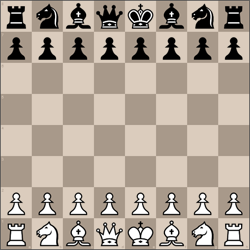John William Brunnemer
February 26 1922
The Brooklyn Daily Eagle, Brooklyn, New York, Sunday, February 26, 1922
BRUNNEMER RETAINS TITLE
John W. Brunnemer of Hillsdale, N. J., and a member of the Brooklyn Chess Club's Metropolitan League team, successfully defended his title in the annual tournament for the New Jersey State championship held at the Newark Rice Chess Club. Brunnemer won from C. Mosh and W. Frere and drew against H. E. Holbrook in the preliminaries, and then defeated W. J. Vandervoort in the final. Up to then Vandervoort had three straight to his credit, but he had to be content with second prize. Holbrook won the third prize and O. G. Horster the fourth.
May 07 1922
The Washington Post, Washington, District of Columbia, Sunday, May 07, 1922
French Defense Fails
Among the opponents it was necessary for John W. Brunnemer, of Hillsdale, to defeat in the annual New Jersey State championship tournament, in order to retain his title, was Walter Frere, son of the late Thomas Frere, a contemporary of Paul Morphy and member of the fifth American Chess Congress code committee, writes H. Helms in the New York Post. Brunnemer accomplished the feat with an unusual variation for White, against the French Defense, as follows.
John William Brunnemer (white) vs. Walter Frere (black)
French Defense: Classical Variation, Rubinstein Variation
Submitted to chessgames.com on 04/03/2025
8. N-Q The players have followed a well-known book variation up to this point. The move in the text was first adopted by Winawer in the Paris tournament of 1878. Recently it was tried out by Brooklyn in a drawn game by correspondence with Boston.
10. … P-QN3 Or, as played by Boston, 10. … PxP; 11. PxP, Q-N5, &c.
14. O-O KR-B This rook belongs on the king's side. Black should have played QR-B instead.
16. QR-B P-KR3 It would be ruinous to play Q-N5 at this stage, on account of RxN, winning a piece.
17. P-KN4 It had evidently been Black's intention to continue with P-KN4, but this move by White forestalls him and places him very much on the defensive.
17. … PxP From this capture, however, Black should have refrained, for it strengthens White's game materially.
19. N-K3 White pursues the safer course on account of the somewhat fast time limit of 25 moves an hour, which prevailed. Instead, he might have tried 19. N-R6ch, K-N2; 20. P-B5, KPxP; 21. BxP P-KN4; 22. NxP KxN; 23. N-K6ch and wins.
19. … N-B Now Black finds his KNP a very weak point, which it is impossible adequately to defend.
24. N-R4 K-B2 It is not feasible to play 24. N-B4, because of 25. QNxN, KPxN; 26. BxP PxB; 27. Q-R3, &c.
25. P-B5 Cleverly and completely demolishing Black's defense. A forced win for White is now merely a matter of time.
28. NxB If 28. N-K8 Q-R3; 29. NxR QxN, with a fighting chance.
29. NxP NxN Forced on account of the threat of N-B6ch.
30. QxNch Q-B2 Losing at once, but in any event Black's fight would have been hopeless.
31. B-B4 Resigns For if 31. … R-B2, then 32. QxQch, RxQ; 33. R-KB, &c.


























